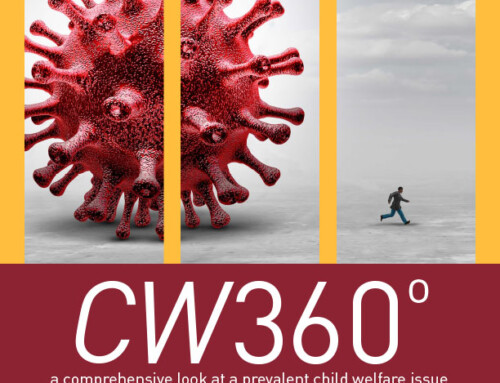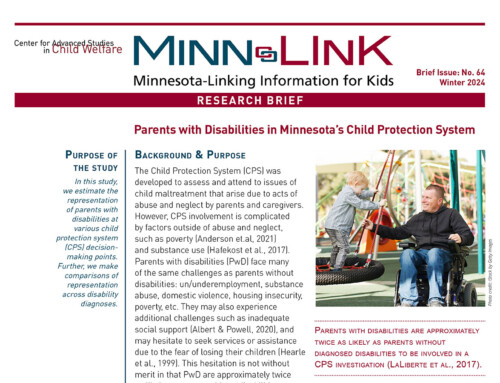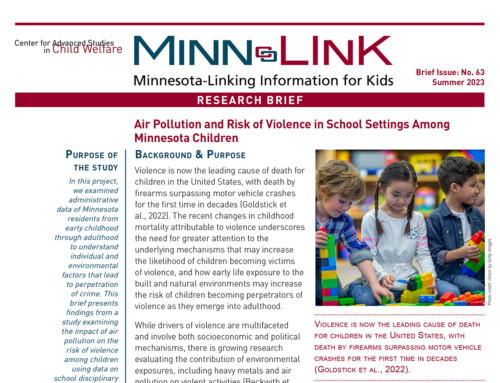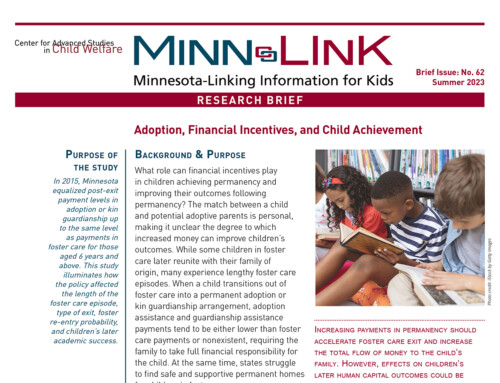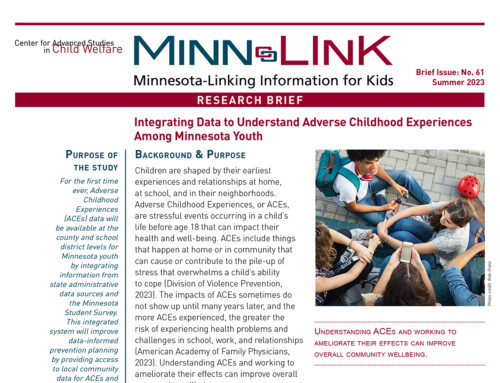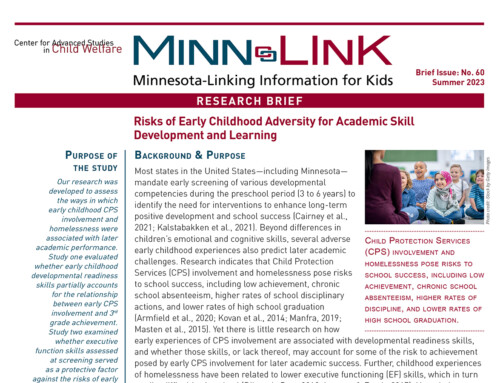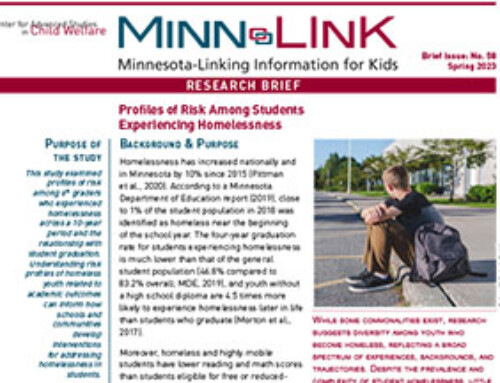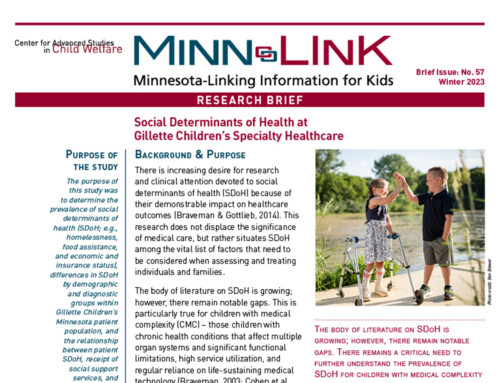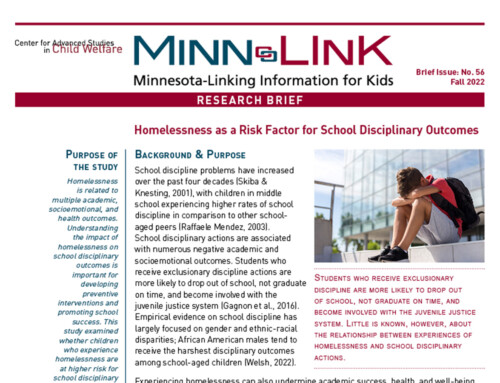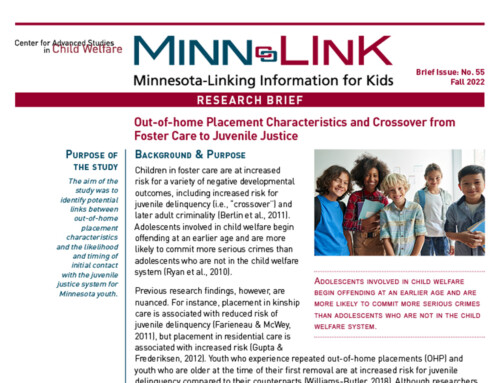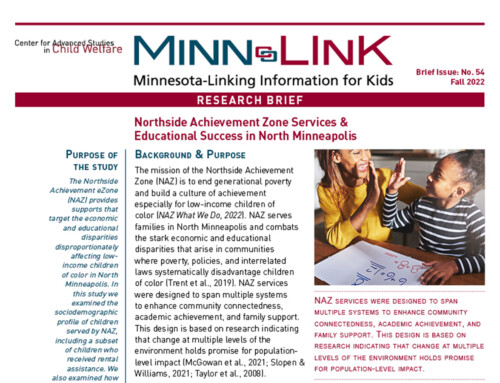Project Description
Authors: Esther Wattenberg & Ann Beuch
Date Published: June 17, 2008
This project unfolded at a time when the national debate on immigration had sharpened, revealing a deeply divided nation, with the health and well-being of children of immigrants rarely on the agenda at any level of government. For Minnesota, the settlement of immigrant families drawn to rural areas by employment opportunities in meat packing and poultry processing companies posed unexpected challenges for the county social service system and school districts.
For child welfare, the circumstances of immigration became increasingly relevant. The necessity to determine eligibility for services added yet another requirement for an overburdened and understaffed rural county.
The variety of ways and the degree to which rural counties discharged their responsibilities to insure the “best interests” of children in immigrant families provided the framework of this study.
Download
Funding for this project was provided through the Division of Child Safety and Permanency, Minnesota Department of Human Services. Additional support was provided by the Center for Urban and Regional Affairs and the Center for Advanced Studies in Child Welfare, School of Social Work, University of Minnesota.
